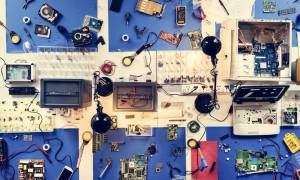There has been a rising concern about the loneliness epidemic in our society. Cigna surveyed more than 20,000 Americans aged 18 over which showed that most U.S. adults are considered lonely among whom the youngest generation was the loneliest of all.
Moreover, a poll by YouGov also confirmed that Millennials have surpassed Generation X and Baby Boomers as the loneliest generation. The YouGov report concluded that 30 percent of Millennials often feel lonely if not always. About one in five people said they have no friends, while 27 percent deny having close friends, and 30 percent have no “best friend.” These numbers are higher in comparison to the other generations surveyed.
Although the reasons for Millennials’ feeling of isolated are not comprehensively examined by the study, it was mentioned in a 2018 study from the University of Pennsylvania that a causal link between time spent on social media with decreased well-being was found. Melissa Hunt, the lead researcher for that study concluded that the bottom line is that less use of social media leads to a significant decrease in both depression and loneliness.
It’s essential to note that loneliness is not being alone. John Cacioppo studied loneliness for more than two decades and defined it as a discrepancy between what you want from your social relationships and your perception of those relationships. People have a tendency to compare themselves with others. It’s a process heavily influenced by the rise of social media.
Stress-inducing comparisons are a side effect of social media. Some people stress over the number of friends they want versus how many they have. Yet for addressing the issues contributing to loneliness, we must at the internal effects of such social media platforms as well.
In other words, what thoughts and feelings are sparked by the use of social media which leads a person to magnify their perceived isolation?
This Guy Explains Everything What’s Wrong With Millennials Today and It Is The Brutal Truth!
The rise of technology has created a pathway for these destructive thought processes to flourish. We all have a version of yourself that’s the champion of who we really are. It is the part of us that is goal-oriented.
However, we also have a vicious anti-self, shaped of negative experiences and influences which pretty much has it in for us. The language of this inner critic can be referred to as the critical inner voice. This voice resembles a sadistic internal critique, always there to punish, and undermine us.
It is a lens through which we filter our experience which contributes to our loneliness. It makes us feel awkward or uncomfortable in our own skin around others. We assume ourselves to be unworthy or uninteresting. It injures a person confidence and even makes them paranoid or suspicious of others.
All of these increase the tendency towards isolation and to feel more lonely. But how does the use of social media exaggerate this precise self-attack?
All of us experience a range of emotions, between high to low. On weekends we may feel exhausted and choose to stay home. However, the minute we watch Snapchat stories or scroll Instagram, we see a flood of people enjoying which makes us feel left out and boring.
There’s a lot of talk about the discrepancy between a photo on social media and the reality behind it. It’s impossible for a picture or caption to accurately reflect a person’s entire mood or feeling. Most of the time smiling into the camera in a trendy new spot is just under the influence of our critical inner voice.
A lot of times, when someone from a glossy photo opens up, they reveal that they often feel uncomfortable in a crowd. Yet, the moment a camera flashes, they do what we all do: put an arm around the person next to them and smile.
Since our loneliness has a lot to do with how we think about our circumstances rather than our actual circumstances, we have the upper hand of changing it.
The first step would be to ignore what our critical conscience is telling us. Many people think that no one likes them, but they should question if this is actually true and look out for the people who care or take an interest in us, not just online but in real life interactions.
To socialize more with people means shutting out the noise of our inner critic. The voice can sometimes be sneaky and soothing, but it’s goal is to make us cynical, paranoid, and suspicious as if others are going to use and hurt us. This simply hints a self-fulfilling prophecy which us to be alone and later, attacks us for feeling lonely.
Millennials loneliness has so much to do with our perception of themselves and the world around them. Challenging their inner critic can be one of the most powerful tools to feel stronger, confident, more at home in their skin, and more empowered to pursue what they really want in life.
There are steps everyone can take to start to conquer our internal enemy, which will eventually lead us down a more socially connected path, where we can form closer and more fulfilling relationships with others.
Bread-Crumbing: A Dating Phenomenon Making Millennials Crazy!














